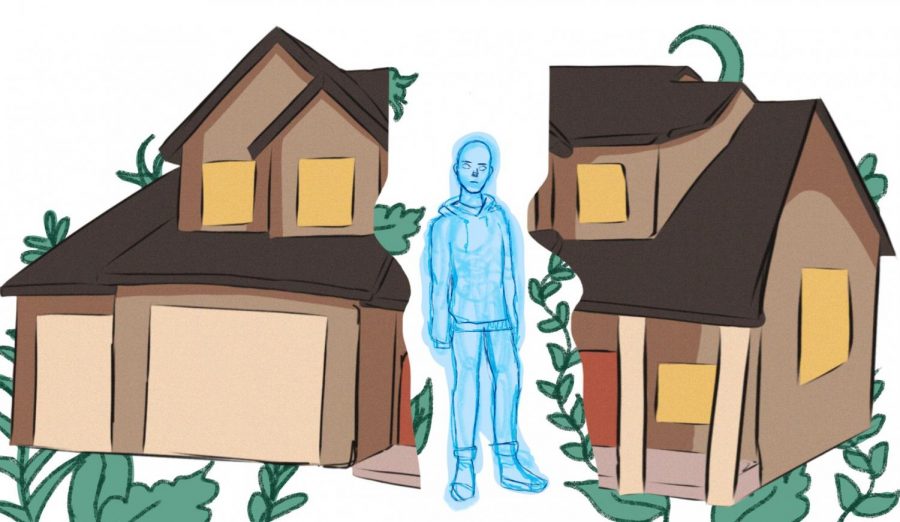Battling student homelessness
Homeless students do not fit the stereotype that many imagine—and they may sit in the desk next to you every day
When people hear the word “homeless,” they often think of bums living in boxes on the street. But student homelessness looks more like a backseat or couch to sleep on.
December 19, 2019
A homeless MCHS student sleeps on a friend’s couch. The student wraps themself in a warm knitted blanket, tirelessly finishing their “homework” while their friend’s family dozes off into the night.
Ruby and her family traveled from Florida to the Midwest, and their new living situation in Illinois raises more challenges.
“We’re considered homeless, but it’s because we live on a campground. We live in a renovated school bus, but to the school we are [homeless],” she said. “I’m almost considered an independent, so it’s also not the most severe case.”
Society judges homeless people by what they wear and how they act, so Ruby feels like her living situation is not as horrible as one may think.
“There’s two different types of homeless people that you see on the streets,” she said. “There are homeless people that are doing something to better themselves, while in the midst of some homeless people that are just begging.”
Growing up in a house is expensive, and Ruby’s life changed when her father’s traumatic head injury led her family to revamp a bus into a home.
“This past year my dad fell and hit his head at work. We didn’t have any money because he got laid off. We couldn’t keep up with the expenses of living in a house. We found a bus that was really cheap, so he decided to renovate it. We weren’t without shelter, but we had no other options.”
She admits that she doesn’t live on the bus that often because it is not parked close enough to the school right now, so she stays at different places every night instead.
“…I don’t stay there as often because [the campground is] an hour away. Where we usually stay is close for hunting. I just bounce around my friends houses every night [instead].”
Another student at MCHS, Kate, opens up about student homelessness, and how it has impacted her life.
“I don’t always identify as someone who’s homeless,” Kate stated. “Because I do have a home, it’s just not my home.”
For the past five years, Kate has been living with relatives in Illinois, and before that she was homeless for a short period of time in California.
“We’ve been legally homeless [before], which is just living with relatives. My whole family does [that],” she said. “We don’t have money to have our own house.”
Something that both students have in common is that they receive a lot of benefits from fafsa for college.
“I get a lot of money for college,” Ruby said. “But it just goes to show that every bad situation comes out with something better. I don’t think that [people] should be pitied, because if you’re just handing them things, they are not going to want to be [more responsible].”
Most often people associate homelessness with people who beg for money on the streets, but these two anonymous students at MCHS prove that there are other ways people end up without a legal address. Having homeless experiences can have a silver lining because it makes students thrive for success.
* Names were changed in this story to protect the privacy of the students featured













